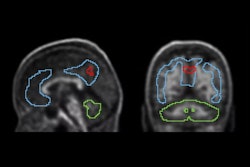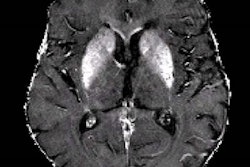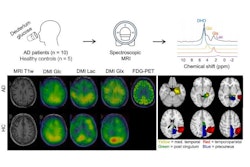Having a father with Alzheimer's disease (AD) may be tied to a greater spread of the tau protein in the brain that is a sign of the condition, researchers have reported.
The findings contrast to previous research that has suggested that having a mother with Alzheimer's may put a person more at risk of developing it, according to a team led by senior author Sylvia Villeneuve, PhD, of McGill University in Montreal, Canada. The group's results were published April 9 in Neurology.
"We were surprised to see that people with a father with Alzheimer's were more vulnerable to the spread of tau in the brain, as we had hypothesized that we would see more brain changes in people with affected mothers," Villeneuve said in a statement released by the American Academy of Neurology (AAN), publisher of the journal.
Risk of developing sporadic Alzheimer disease dementia "is influenced by demographics and genetic factors," the group explained, noting that "among those factors, female (versus male) sex increases the risk of AD dementia," and "parental family history of AD also increases cumulative risk of AD dementia." However, the effect of having a male parent with the disease has not been thoroughly studied.
To explore the question, the investigators conducted a study that included 243 people; the cohort's average age was 68 and the majority were white and female. Participants had a family history of Alzheimer's disease but no cognitive impairment themselves. (Villaneuve and colleagues defined family history of Alzheimer's as having one or both parents or at least two siblings with the disease.) Study participants underwent either brain MRI or PET scans and completed thinking and memory skill tests at the start of the study and during the study; they were tracked for an average of seven years.
During the study time frame, 71 of the 243 participants developed mild cognitive impairment, which is considered a precursor to Alzheimer's disease.
The group reported the following:
- People with a father with Alzheimer's disease had a greater spread of tau protein in the brain.
- Female study participants had a greater spread and a heavier buildup of tau protein in the brain. However, women also showed more brain resilience to amyloid beta, a predominant brain plaque found in people with Alzheimer's, leading the researchers to note that amyloid beta may be "a less important driver of atrophy in women."
The researchers stressed that the study does not prove that having a father with Alzheimer's results in these brain changes, but only shows an association. Yet the results could improve Alzheimer's interventions, according to Villeneuve.
"Better understanding these vulnerabilities could help us design personalized interventions to help protect against Alzheimer's disease," she said.
The study underscores the need for "sophisticated multimodal disease modeling approaches to improve risk stratification," wrote Lyduine Collij, MD, of Lund University in Sweden, and colleague Sophie Mastenbroek, MD, of Amsterdam University Medical Center in the Netherlands, in an accompanying commentary.
"Future research should explore underlying genetic, hormonal, and cellular mechanisms to better understand pathways leading to AD pathology," Collij and Mastenbroek noted.
The complete study can be found here.




















